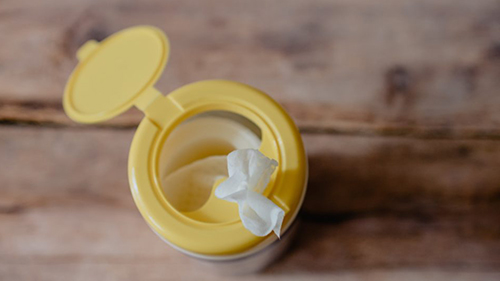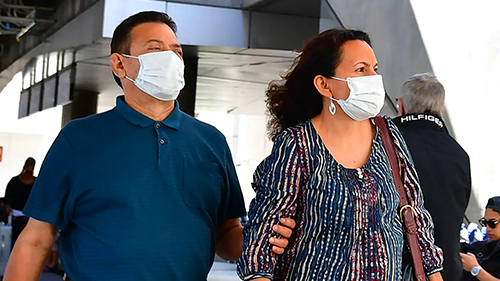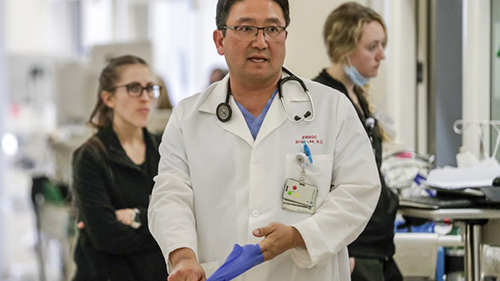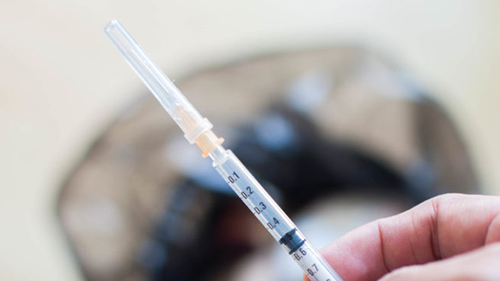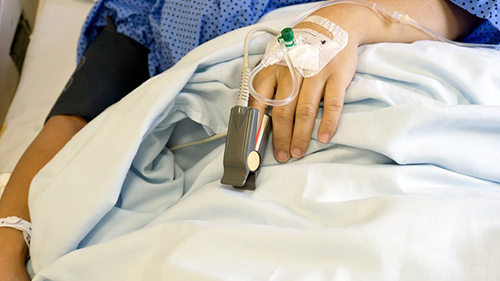The privacy watchdog won’t impose penalties on providers who use non-HIPAA-compliant remote communications technology during the public health emergency. The HHS Office for Civil Rights announced on Tuesday that during the coronavirus pandemic it will use discretion when enforcing HIPAA-compliance for telehealth communications tools. Why It Matters Even though some of those technologies may not fully comply with HIPAA requirements, OCR says it “will not impose penalties for noncompliance with the regulatory requirements under the […]
Read MoreSafety & Compliance
How to Respond Effectively to Covid-19 Waste Generation
The covid-19 pandemic threatens to create large amounts of new waste, particularly for resource managers at organizations that aren’t in the healthcare sector. Manufacturers, businesses, governments, schools, universities and others that don’t normally deal with potentially infectious waste may be unsure how to respond safely and responsibly. As the novel coronavirus continued spreading, Environment + Energy Leader asked Wade Scheel, director of government affairs for the environmental and regulated waste management solutions company Stericycle, for […]
Read MorePatient Lawsuits for HIPAA-Related Breaches
HIPAA-related lawsuits came to the attention of Alexander Wolff when a fellow attorney called him with a case a few years ago. The plaintiff was a woman and friend of a man who was dating a nurse. The nurse, who worked at a hospital where the plaintiff received healthcare, was suspicious that the plaintiff and man were having an affair, so she accessed the woman’s chart. The nurse sent the man screen shots of the […]
Read MoreShortage of personal protective equipment endangering health workers worldwide
The World Health Organization has warned that severe and mounting disruption to the global supply of personal protective equipment (PPE) – caused by rising demand, panic buying, hoarding and misuse – is putting lives at risk from the new coronavirus and other infectious diseases. Healthcare workers rely on personal protective equipment to protect themselves and their patients from being infected and infecting others. But shortages are leaving doctors, nurses and other frontline workers dangerously ill-equipped […]
Read MoreAnxiety mounts among U.S. health workers on the front lines of coronavirus outbreak
Doctors and nurses say they are alarmed by reports that multiple health workers in the United States have been sickened by a deadly coronavirus and that hospitals and other healthcare facilities appear to have become hot spots for the spread of infections. On Sunday, health officials announced that two staff members at a Northern California hospital had contracted COVID-19 from a patient. A day earlier, officials said that a health worker at a Seattle nursing […]
Read MorePublic Health vs. Patient Privacy – How Coronavirus Is Putting HIPAA to the Test
In a recent blog post, colleagues in our Employment, Labor & Workforce Management practice addressed the legal framework pertaining to coronavirus (COVID-19) risks in the workplace. As the number of cases continues to the climb in the U.S., it is imperative that HIPAA covered entities and their business associates are aware of their privacy and security responsibilities in the midst of this public health emergency. EBG provides this guidance on how to effectively respond to the coronavirus public […]
Read MoreSafety in Simplicity: Helping Surgeons Work Without Fear of Infection
If you were to imagine a list of risky jobs, you might think of being a construction worker, a prison officer, an oil rig worker – anything that involves heights or challenging environments. Being a surgeon might not be top of the list. However, new research shows that in fact an overwhelming majority of surgeons have had a close encounter with a serious risk to their health and safety: a sharp, or needlestick injury. The […]
Read MoreAccidental Needlesticks: The Silent Killer
We all know that doctors and nurses work long hours under trying conditions, particularly in hospital emergency rooms, to save lives and bring healing and comfort to the sick. What too many people do not know is that healthcare workers face a potential silent killer every day that is so common it is routinely overlooked and ignored: accidental needlesticks. Every year in the United States, more than 400 million blood draws are performed. Some of […]
Read MoreThe dangers of being a doctor: threatened by those who seek help
Recently, the House of Representatives passed a bill, the Workplace Violence Prevention for Healthcare and Social Service Workers Act. This bill, as the name suggests, seeks to provide legal protections to health care workers from workplace violence. The passing of this bill did not create much fanfare; we did not see any coverage of it on the evening news, nor was it mentioned by any of the presidential candidates. We are here to tell you […]
Read MoreHealth systems must tackle workplace, patient safety in tandem, IHI says
ORLANDO, FLORIDA—A nationwide effort to improve and coordinate patient safety measures will strive to make a connection between workplace and patient safety. The Institute for Healthcare Improvement (IHI) gave an update during its National Forum this week on the creation of a national patient safety plan intended to encourage better coordination of safety efforts. A key goal of the plan, expected to be released next year, was to emphasize the role of improving workforce […]
Read More
